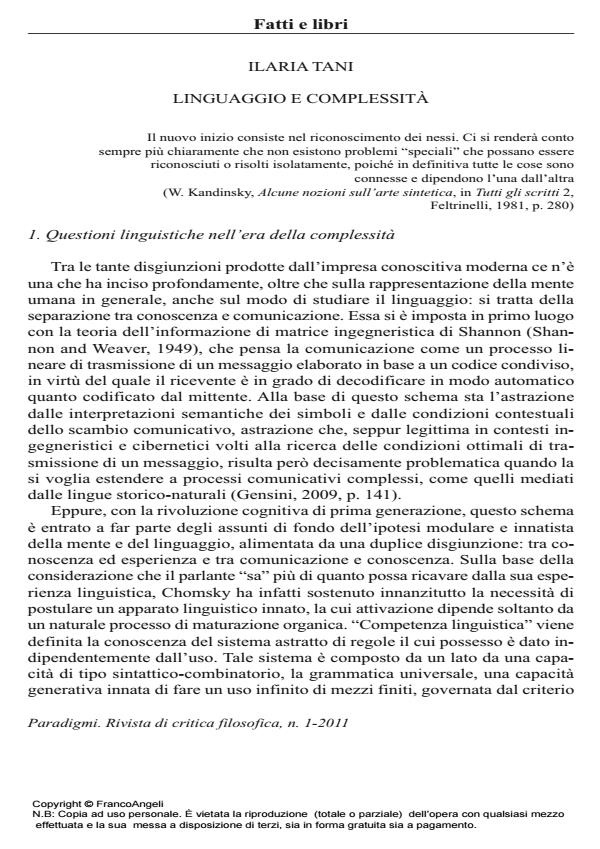Language and Complexity
Journal title PARADIGMI
Author/s Ilaria Tani
Publishing Year 2011 Issue 2011/1
Language Italian Pages 18 P. 145-162 File size 293 KB
DOI 10.3280/PARA2011-001009
DOI is like a bar code for intellectual property: to have more infomation
click here
Below, you can see the article first page
If you want to buy this article in PDF format, you can do it, following the instructions to buy download credits

FrancoAngeli is member of Publishers International Linking Association, Inc (PILA), a not-for-profit association which run the CrossRef service enabling links to and from online scholarly content.
Research has recently called into question some of the dichotomies used in the study of language (cognition vs. communication, in the first place). The new perspectives - variously belonging to a paradigm of complexity and stemming from the so-called "second-generation cognitive revolution" or "embodied mind revolution" - may be traced to a philosophical tradition rooted in 18th-century thought. Moving from recent reconstructions, this paper traces a philosophical genealogy and focuses on some of the fundamental issues at stake: the links between cognition and communication, individual and linguistic community, and the political relevance of linguistic diversity in a globalized scenario.
Keywords: Complexity, Diversity, Double articulation, Europe, Language, Language community
Ilaria Tani, Linguaggio e complessità in "PARADIGMI" 1/2011, pp 145-162, DOI: 10.3280/PARA2011-001009